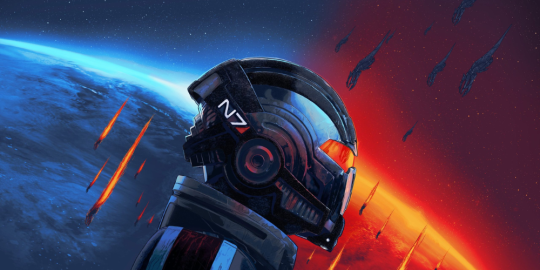
Genesis of the Mass Effect Series
Marching into the gaming scene in 2007, Mass Effect is a product of esteemed developers Bioware, published under Electronic Arts. Conceived as a hybrid between traditional role-playing games and third-person shooters, the series stands out with its strong narrative, extensive world-building, and profound moral choices with far-reaching consequences. The series has made a significant impact in the video gaming industry, serving as a beacon for narrative-focused games and giving players the power and freedom to affect the storyline.
Mass Effect (2007): A Stirring Introduction
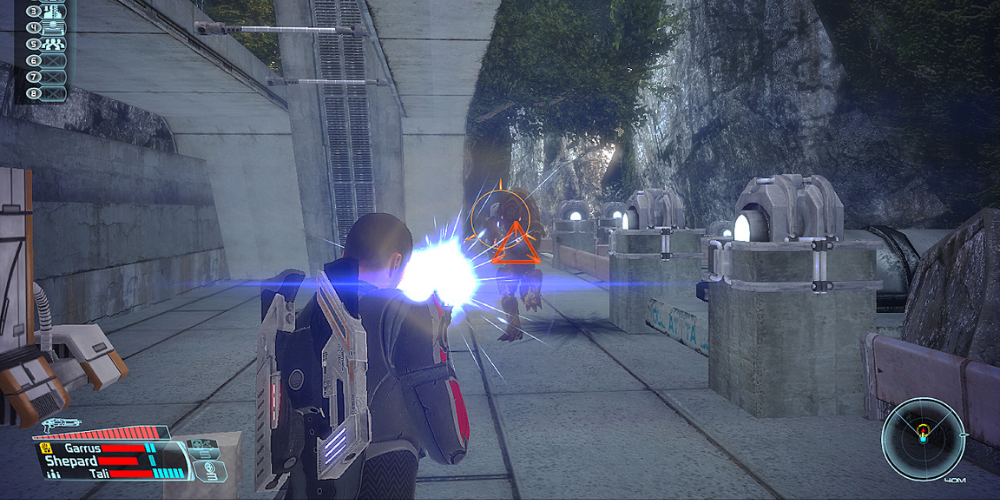
The introductory chapter of this thrilling trilogy series immediately immersed gamers into the complex universe of this game, casting them into the integral role of the strong and determined Commander Shepard, whose primary mission was to safeguard the entire galaxy from the malevolent influence of the rogue Spectre, a cunning antagonist named Saren, along with his formidable battalion of cybernetic beings known as Geth.
The allure of ever-changing galactic politics coupled with the responsibility of preserving interstellar peace is one the game capitalized heavily on, thereby stimulating a personal level of connection between the player and their in-game persona. Immediately, the game set a high standard and established its place in the gaming world, becoming widely recognized not only for its innovative, intertwined role-playing universe but also for its layered aspects of gameplay which elevated player engagement.
One of its cardinal contributions to the genre was the incorporation of a particularly advanced dialogue system. This system, sophisticated in its implementation, effectively allowed gamers to conduct rich conversations with myriad Non-Player Characters (NPCs) in-game, exploring multiple dialogue options tailored uniquely to individual interactions.
Additionally, the game pulled players into its intricate narrative by offering them a deep level of character involvement and interaction, exquisitely plotting each relationship and portraying personalities not only through dialogue but also through intricate personal histories and gripping story arcs. The manner in which the players navigate these relationships and interactions often bears a significant impact on the unfolding narrative.
Furthermore, one of the defining features of the game was that it offered a set of choices that would invariably result in game-changing consequences. This element of choice-and-consequence provided players with a sense of agency. They rendered the story a dynamic and unpredictable journey hazardously laden with dire consequences. This legacy continued to be a mainstay in the successive chapters of the series, thereby etching the game as a milestone not only in narrative design but also in the general expanse of role-playing games.
Mass Effect 2 (2010): Building Upon a Strong Foundation and Enhancing the Gaming Experience
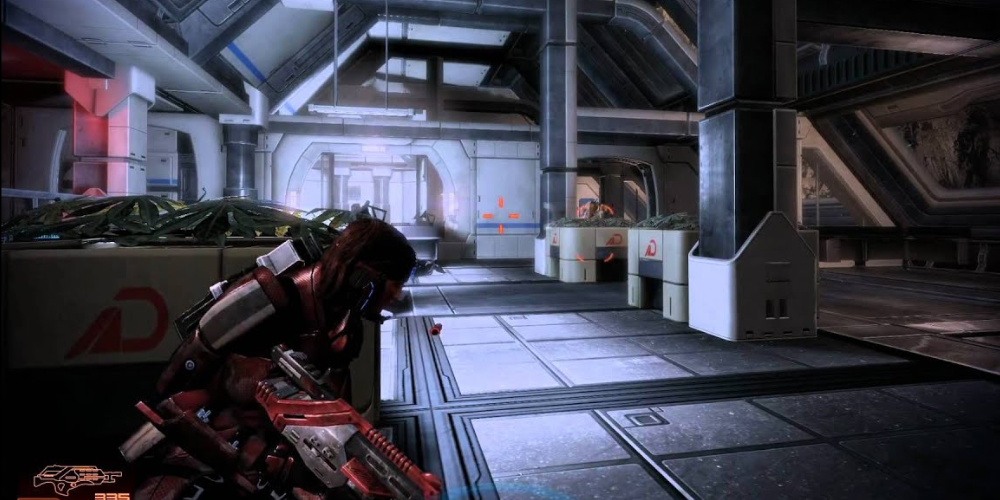
Following on the heels of the inaugural game that had set the gaming community abuzz with excitement, Mass Effect 2 embarked on an ambitious endeavor not just to recycle the winning formula but to further enrich the narrative with greater depth and nuance. This sequel was a clear demonstration of the developers' unwavering commitment to enhancing the player's gaming experience, an objective manifest in the game's in-depth character development wrapped in the overarching narrative. Undoubtedly the most critically acclaimed in the series, Mass Effect 2 launched Commander Shepard and the player into an intense phase of the cosmic saga.
In this thrilling second installment, Shepard finds himself faced with the daunting task of assembling a team of exceptional specialists drawn from across the universe. This team, each member with unique skills and personal stories, was to undertake a perilous suicide mission against the ominous and mysterious Collectors. This complex narrative was remarkably executed, keeping players thoroughly invested in the fate of their team and the universe at large. Furthermore, the game boasted a noticeably more refined combat system that ensured action-packed encounters were as smooth and engaging as ever.
What set Mass Effect 2 apart, in many respects, was its exceptional narrative that was steering dependent on player choices, a feature that by now had become a defining hallmark of the series. The players found themselves with the burden of influencing not just individual characters' arcs but also the overarching narrative.
This exceptional blend of narrative freedom and player-driven choices worked exceptionally well, resulting in a sense of ownership over the gaming experience. Consequently, the second episode successfully sustained the series' popularity among its seasoned fanbase. Simultaneously, its unparalleled narrative depth and player-driven storytelling mechanics drew in a new generation of players, echoing the game's acclaim and widespread appeal.
Mass Effect 3 (2012): The Unforgettable Galactic Climax
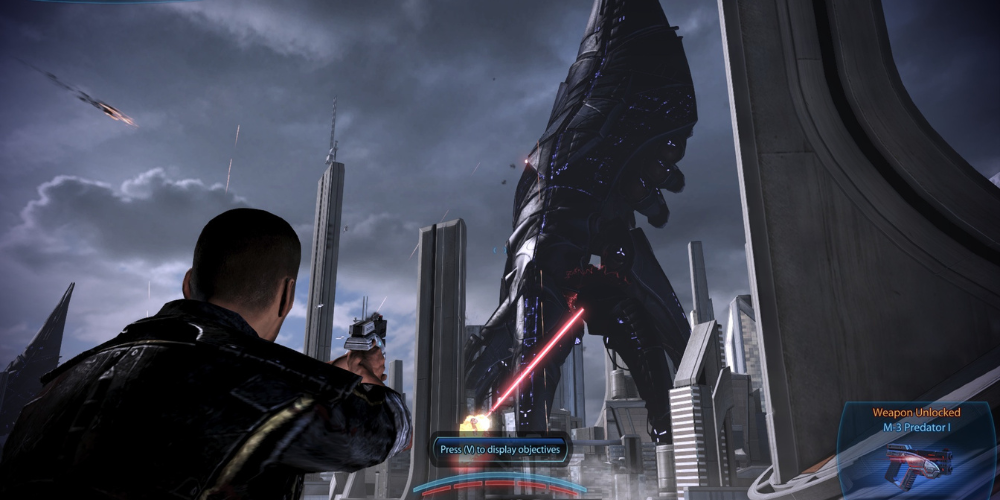
Released in 2012, Mass Effect 3 stood out as a milestone in the gaming industry, renowned for its gripping storyline, which reached its peak in an intense, high-stakes confrontation against the shadowy antagonists known as the Reapers. These adversaries were depicted as a formidable, highly advanced machine race known for their brutal purging of organic life throughout the galaxy, a chilling process that unfolds in grand cycles spanning countless millennia. This intimidating backdrop provided the perfect setting for a riveting narrative, making a lasting impact on players worldwide.
Mass Effect 3 was not devoid of controversy. The fallout over its conclusion generated mixed reactions among its diehard fanbase, yet the overall circumstance could not overshadow the game's ability to provide a deeply satisfying finale to the epic odyssey of its central protagonist, Commander Shepard. This conclusion marked the end of Shepard's pulse-pounding journey, producing moments of immense emotion and spectacular, adrenaline-fueled action sequences that would indelibly remain in the minds of players.
The game developers' choice to further emphasize player agency turned out to be an act of brilliance. This innovative feature meant that decisions made by players over the course of weeks, months, or even years of gameplay had palpable impacts on the unfolding narrative. The result was a single, thrilling climax, a culmination of countless hours of dedicated gameplay, that truly made players feel as though their choices had weight and significance.
Mass Effect: Andromeda (2017): A Foray into New Frontiers
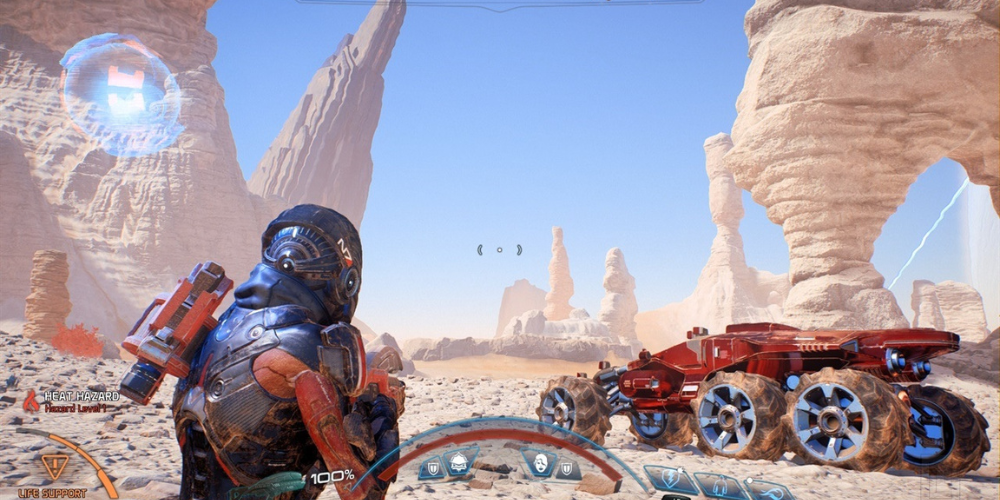
Taking place far away from and long after the events of the initial trilogy, Mass Effect: Andromeda introduced players to a new hero, Ryder, and a fresh galaxy to explore. While experiencing criticism for its technical issues and narrative shortcomings, it offered a vast open world and more RPG mechanics, which maintained the series' reputation for an expansive, interactive universe.
The Future of the Mass Effect Series
With the story of Commander Shepard conveyed and the Andromeda galaxy explored, the future of the Mass Effect series holds tantalizing prospects. A teaser trailer unveiled at The Game Awards 2020 hinted at a return to the Milky Way galaxy and an unfamiliar yet classic storyline, fueling anticipation for what's next for this iconic series.
Summing Up the Intergalactic Journey
In conclusion, the Mass Effect series has been instrumental in showcasing the potential of video games as a storytelling medium. From its inception in 2007 to its latest installment in 2017, the series has consistently offered engaging narratives and interactive gameplay, allowing players to shape their experiences within a rich, cosmic universe truly. As we look toward the future of the Mass Effect series, we can only anticipate more brilliance from this monumental interstellar ride. Undoubtedly, the series promises to beam gamers back into its uniquely compelling universe, using advanced technology and innovative storytelling techniques to deliver immersive gaming experiences.